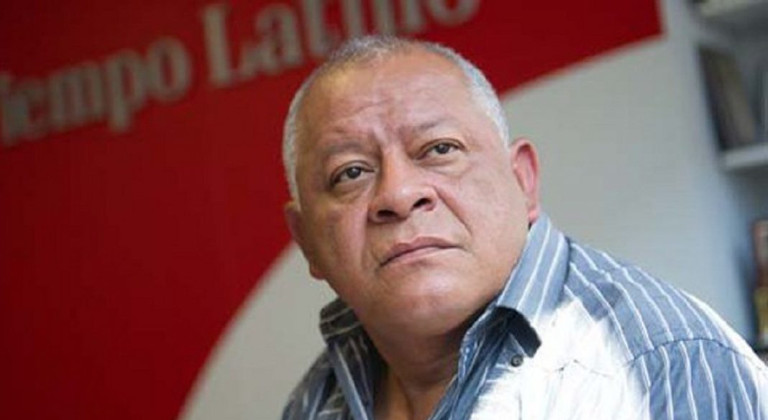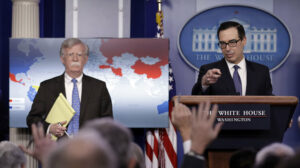
(Argus, 27.Nov.2019) — Another prominent figure in Venezuela’s US-backed parallel administration has abruptly departed and an oil union leader has quit the main opposition political party in the latest signs of internal discord.
In a 26 November letter, self-declared interim president Juan Guaido informed his Colombia envoy Humberto Calderon Berti that a new envoy would be appointed.
Multiple sources in Venezuela’s political opposition blame Calderon’s ouster on repeated friction with Guaido’s foreign relations envoy, Julio Borges. They tell Argus they were nonetheless taken by surprise by the departure of Calderon, who has long personal and business experience in Colombia and fluid relations with senior figures in the Colombian government, Guaido’s leading backer in Latin America.
The letter states that “in line with conversations with the presidential commissioner for international relations, we have decided to make changes in our foreign policy with the aim of achieving the objectives laid out by our legitimate government”.
No replacement has been named, but the next envoy is expected to come from Borges’ First Justice party (PJ), which is part of the opposition coalition that backs Guaido.
Calderon, a petroleum engineer, served as oil minister and chief executive of Venezuelan national oil company PdV in the years before late president Hugo Chavez’s 1998 election.
Calderon’s career includes a founding role in Colombian independent oil company Vetra, which is currently controlled by private equity firm Capital Group.
During his parallel diplomatic tenure in Bogota, Calderon advocated for Venezuelan migrants who officially number about 1.5mn but may be as many as double that number.
He could not be reached for comment.
Calderon’s ouster comes at a sensitive time for Colombia, where a week-long protest movement allegedly infiltrated by Venezuelan instigators has led to some pockets of looting and clashes with security forces. This week, the Colombian immigration service expelled four dozen Venezuelans accused of participating in the unrest.
Labor loss
Less than 24 hours after Calderon was removed, influential oil union leader Ivan Freites resigned from Guaido’s Voluntad Popular party (VP).
Freites said in a public letter addressed to VP national co-ordinator Leopoldo Lopez that he is leaving the party due to its “lack of clarity in the objectives of oil policy, which must be nationalist, transparent and attached to the legitimate interests of the Venezuelan people”.
Freites is a well-regarded union figure who threw his support behind Guaido in the early days of the parallel administration, providing key labor support for the mainstream opposition cause.
Freites charged in his letter to Lopez, who is currently holed up in the Spanish diplomatic residence in Caracas, that there is a “lack of clarity and forcefulness” on labor rights and a failure to stake out clear positions to defend Venezuela from Cuban meddling and to investigate corruption.
Freites affirmed that he will continue fighting for labor rights and called on Lopez, Guaido and the VP leadership to “place Venezuela above any other type of interest and correct your path for the good of the democracy we are all seeking to recover”.
Freites was not available for comment. But two close union associates said he had grown increasingly disenchanted with Guaido’s leadership and worried that VP-backed proposed oil legislation would destroy PdV and re-privatize the Venezuelan oil industry.
The high-profile departures of Calderon and Freites are the most recent indication of disarray in senior opposition ranks.
In September, Venezuela’s former planning minister and current Harvard professor Ricardo Hausmann stepped down as the Guaido team’s representative to the Inter-American Development Bank and the lead figure in debt talks with creditors in the US.
Guaido declared his interim presidency in Caracas in January 2019, but despite escalating US financial and oil sanctions, Venezuelan president Nicolas Maduro has not fallen. Guaido’s summoning of nationwide marches on 16 November brought out large crowds, but far fewer than the throngs of supporters who filled the streets in early 2019.
Guaido’s administration is recognized by the US, the EU, Canada and some countries in Latin America, including Colombia, Brazil, Peru and Chile. Bolivia’s interim administration that took over following the 10 November resignation of Evo Morales, a Maduro ally, has now recognized Guaido as well. Argentina’s recognition of Guaido is likely to be withdrawn after new leftist president Alberto Fernandez takes office early next month. Mexico and Uruguay have steered clear of the conflict, advocating dialogue instead, but Montevideo’s position could also shift following 24 November elections. ***

